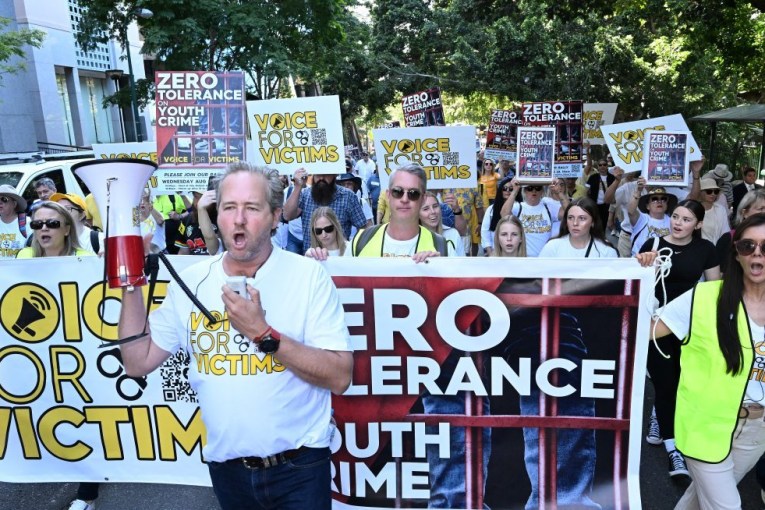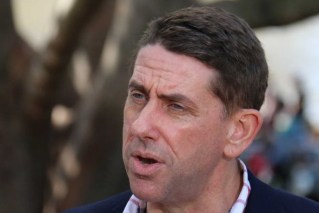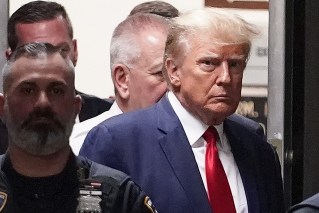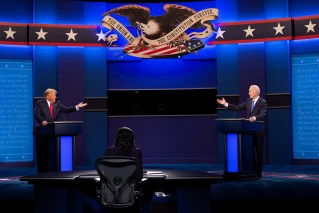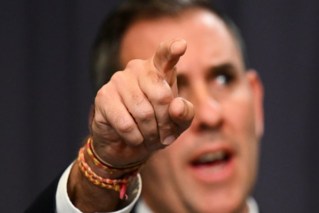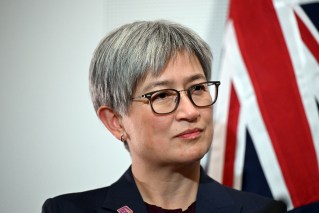As the dominoes wobble, is this the most dangerous election tactic in our history?
International relations will be one of the great themes of the federal election early next year with top Queensland LNP minister Peter Dutton at the centre of it all. Dennis Atkins looks at the issues and searches for historical perspective.

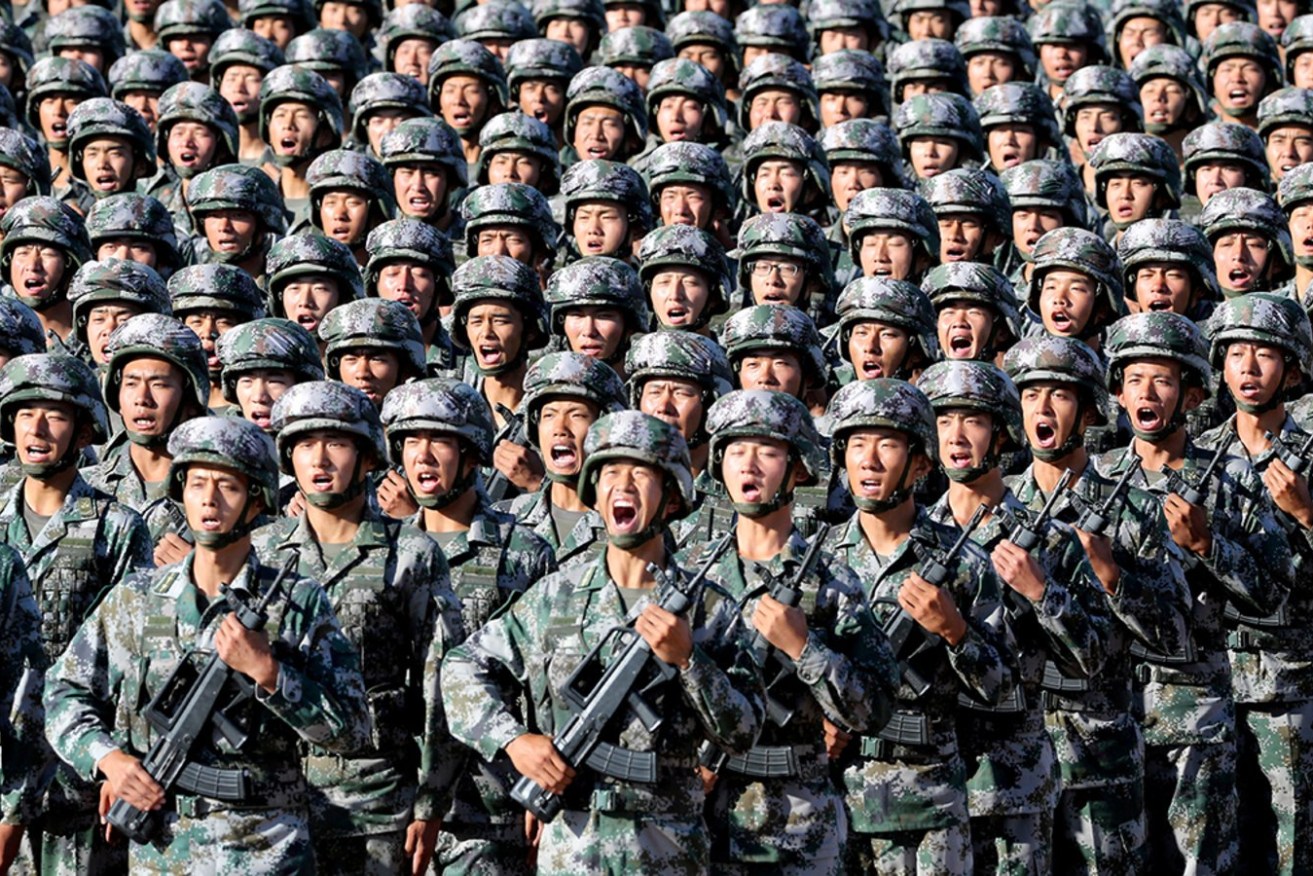
PLA soldiers prepare for a military parade in 2017. (Image: Council on Foreign Relations
There’s nothing certain about democracy. It’s a contested idea in itself and wherever it is established, developed or nascent it can be threatened easily.
Towards the end of next week United States President Joe Biden is hosting a two day, virtual summit of a democracy, bringing together 110 nations as well as plenty of academics, advocacy operators and non-governmental workers.
Some were at the Copenhagen Democracy gatherings held annually since this particular group first convened in 2018. Despite more than 40 “great democracies” taking part in these summits – kicked off largely by Joe Biden as the former US vice-president – Australia has had no apparent official representation.
Malcolm Turnbull addressed the 2020 virtual summit but that is the only trace of activity from this part of the world.
We will be at the more official, more ambitious Biden in Office summit, although who knows how much of a say Scott Morrison might get as who knows how many of the 110 national leaders elbow for a few minutes at the virtual podium.
If he does get a say, we can be certain he’ll be bending his message towards the government’s favourite foreign policy bullhorn, security in the region (insert China at any appropriate opportunity or just use code words).
China, who is not on the list of attendees but will be a pervasive presence, is already cranky about this democracy summit, mainly because Biden has invited Taiwan to add its voice.
Taiwan will be represented by its digital minister and de facto ambassador to Washington but even this downplaying of presence infuriates Beijing.
Chinese officials – backed by another non-attendee, Russia – say the summit is promoting a Cold War mentality and having Taiwan there makes it worse.
Defence Minister Peter Dutton stirred the China pot – yet again – at the National Press Club last week with an extraordinary speech which resurrected the long debunked and outdated Domino Theory in relation to Beijing’s regional ambitions and intentions.
While the original domino theory took hold in Washington policy units and think tanks in the 1940s during Harry Truman’s time in the White House, it was his successor Dwight Eisenhower who first referred to it publicly in a news conference held in April, 1954.
“(You have) broader considerations that might follow what you would call the ‘falling domino’ principle,” said Eisenhower. “You have a row of dominoes set up, you knock over the first one, and what will happen to the last one is the certainty that it will go over very quickly. So you could have a beginning of a disintegration that would have the most profound influences.”
This theory was the basis for US military involvement in first Korea and then the South-East Asian nations of Vietnam, Cambodia and Laos.
For a while it was a self-fulfilling thesis, creating a military/political feedback loop justifying the next move by pointing to the claimed success of the last gambit.
As the Vietnam War was lost and the whole South-East Asian adventure was shown to be a political, strategic and diplomatic disaster, the theory was consigned to the policy dustbin of history.
One of its more fervent adherents, former US Defence Secretary Robert McNamara eventually admitted it had been a wrong policy, based on assumptions without foundation.
“I think we were wrong,” McNamara said in 1995. “I do not believe that Vietnam was that important to the communists. I don’t believe that its loss would have led – it didn’t lead – to Communist control of Asia.”
McNamara went on to not just debunk the whole raison d’être for the US involvement in Vietnam but, after some 58,000 American military personnel died and as many as a quarter of a million South Vietnamese perished, rewrote history and admitted there was another way to handle things.
For most serious strategic analysts this was the last anyone heard of the domino theory until last week. Now it’s back like Jack Nicholson wielding an axe through the hotel door in The Shining, all menace and grim intent.
Dutton’s resurrection of the tumbling dominoes was dressed up in strategic jargon, conjuring up memories of Paul Keating’s phone call to former Labor minister Jim McClelland: “That you, Jim? Paul Keating here. Just because you swallowed a f—ing dictionary when you were about 15 doesn’t give you the right to pour a bucket of shit over the rest of us.”
Dutton’s discovery in the geo-strategic dictionary was the notion of “tributary states” which was how the defence minister believes China views Australia. Tributary states are subservient nations in financial debt to a great power – paying tribute to the dominant force, usually in financial terms.
The other notion in geo-politics is the vassal state where a nation has domestic independence but is dominated in international relations – this has its origins in feudal societies.
While Australia has had a codependent economic and commercial relationship with China it’s hard to find anything to support the notion of Australia paying tribute to Beijing.
This appears to fit with the world view of a group of public sector and think tank hawks who view everything in Australia-China relations through the prism of heightened strategic alert and rhetorical aggression.
One of the leaders in this school is Dutton’s close public service ally Michael Pezzullo, head of the Home Affairs department. Pezzullo is a neo-con (Washington shorthand for a liberal conservative hawk) by instinct and practice, making him a Canberra version of George W. Bush’s defence minister Paul Wolfowitz.
Pezzullo has always been a “threat from the north” hawk, whether it is people smuggling, drugs or big strategic plays such as “China on the move”. You can smell his influence in the jargon laced tributary state thesis.
Of course, this tarted up faculty lounge theory has a political intent in the always moving hands of someone like Dutton, forever on the lookout for a stiletto to drive into an opponent’s soft underbelly.
Labor’s foreign affairs spokeswoman Penny Wong is right to say Dutton is “amping up the threat of war” with China adding this is “the most dangerous election tactic in Australian history”. It is also completely out of sync with modern reality. Yes China is a regional bully and aspiring hegemon but it is not the main security threat game in town.
When he was voicing his domino threat, Dutton warned his audience not to forget the lessons of the 1930s, a clear reference to big strategic plays in Europe before the second world war.
This is true but by focussing so intently on the Asia Pacific, Dutton (and some others) is at risk of missing the real global strategic threat again being played out in Europe. There many nations are bracing for what is seen as an inevitable invasion of Ukraine by Russia followed by other possible incursions into nations like Moldova, Estonia, Latvia, Lithuania and Georgia.
These things will be discussed quite certainly at Biden’s Democracy Summit. If so, Australia should take note and stop playing its dangerous game of domestic politics with China.
